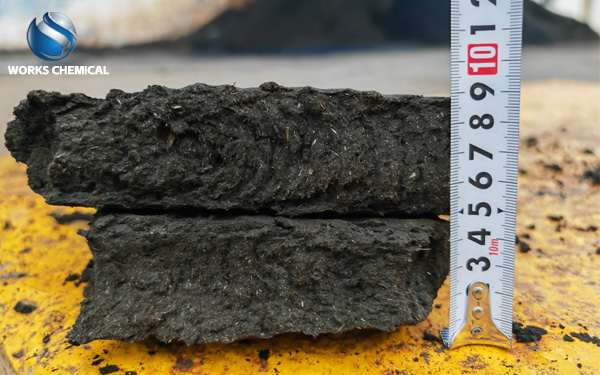
The reasons why the plate and frame filter press mud is not formed and the filter cloth is sticky may involve many aspects, the following is a detailed analysis of these reasons:

Reasons for unforming mud
Sludge conditioner problem:
Lack of sludge conditioner: the sludge is not added before entering the plate and frame filter press, resulting in poor sludge dewatering effect and difficult to form a stable mud cake.
Insufficient mixing of sludge and conditioner: the mixing time of sludge conditioner and sludge is insufficient or the dosing method is improper, resulting in uneven mixing and affecting the dewatering performance of sludge.
Improper selection of sludge conditioner model: the selected sludge conditioner model is not suitable for the nature of the sludge, the rigidity of the formed floc is insufficient, and it is easy to deform under the action of external forces, which is not conducive to mud pressing.
Sludge properties:
Sludge solid content is too low: the content of solid particles in the sludge is insufficient, resulting in difficult to form a tight mud cake during filtration.
No modification of hydrophilic groups on the surface of sludge: The surface of biochemical sludge contains a large number of hydrophilic groups, if not modified by sludge conditioner, it will increase the difficulty of dehydration and reduce the formability of mud cake.
Poor water filtration and large specific resistance of sludge: poor water filtration and specific resistance of sludge will lead to dehydration difficulties and affect the formation of mud cake.
Equipment problem:
Improper commissioning of plate and frame filter press: The newly put into operation equipment has not been fully debugging, which may lead to poor sludge dewatering effect.
Insufficient compression force: insufficient compression force will lead to insufficient pressure in the filter chamber, unable to fully extrude the water in the sludge, affecting the formation of mud cake.
Reasons for sticky filter cloth
Mud composition and characteristics:
There are more fine particles and high-viscosity substances in the mud, which are easy to adhere to the filter cloth.
The high content of organic matter, especially protein, oil and other organic substances, will increase the viscosity of the mud, making it easier to adhere to the filter cloth.
Filter cloth problem:
Improper selection of filter cloth material and aperture: The material and aperture of the filter cloth should be selected according to the nature of the mud, if the improper selection will lead to the surface of the filter cloth easy to adhere to the mud.
Poor surface treatment of filter cloth: Improper surface treatment of filter cloth, easy to absorb fine particles and organic matter in mud, increase adhesion.
Operation problem:
Too high or too low filter pressure: the setting of filter pressure has a great impact on the formation and adhesion of filter cake. Excessive pressure may cause the mud to be over-squeezed and adhere to the filter cloth; If the pressure is too low, the water in the mud can not be fully discharged, affecting the forming and dewatering effect of the mud cake.
The filtration cycle is too long: the mud stays on the filter cloth for too long, which is easy to increase the adhesion.
Uneven feed: uneven feed will lead to high mud concentration in some parts or uneven particle distribution, easy to adhere to the filter cloth.
Equipment maintenance problem:
The filter cloth is not cleaned in time or is not cleaned thoroughly: using the filter cloth that is not cleaned or not cleaned thoroughly for a long time will cause the pores of the filter cloth to be blocked and increase the adhesion.
Poor sealing of equipment: poor sealing of equipment will lead to mud leakage and increase the adhesion burden of filter cloth.
In summary, the reasons for the non-forming mud press of plate and frame filter press and the adhesion of filter cloth involve sludge conditioning, sludge properties, equipment debugging and operation, and filter cloth selection and maintenance. In order to solve these problems, it is necessary to consider the above factors comprehensively and take corresponding measures to improve and optimize.